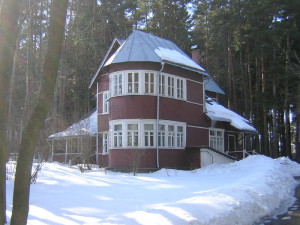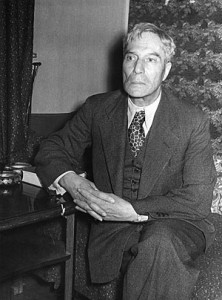Boris Pasternak on Doctor Zhivago and “this terrible lack of time.”
Thursday, July 16th, 2015
A pretty good Zhivago?
Omar Sharif, who died earlier this week, was a handsome man and an uneven actor. I was a girl when I first saw Doctor Zhivago, and it made an impression, although this is difficult to talk about in the years since because my Russian friends won’t stop laughing at me when I try. In any case, Lisa Lieberman over at 3quarksdaily put her finger on it:
“Omar Sharif plays a Russian and Doctor Zhivago was shot mostly in Spain by a British director, produced by an Italian. ‘Lara’s Theme,’ the schmaltzy leitmotif that evokes the Julie Christie character, can still be heard in elevators today. But the film has endured, in no small part due to the humanity of Omar Sharif’s performance.
“Let’s start with an early scene: it is 1912 and a group of workers are demonstrating in the streets of Moscow, led by the idealistic Pasha Antipov, a young social democrat. An equally young and idealistic Yuri Zhivago watches the scene from a balcony, and witnesses the violence as the workers are mowed down by Cossacks on horseback. Pasha is radicalized by the event and becomes a revolutionary, lashing out against the regime responsible for such brutality, but growing more ruthless as the story progresses. Yuri turns away, turns inward. Each new upheaval in Russia, each act of violence, reaffirms his determination to live, to love, and to create. Sharif registers pain in those soulful brown eyes. Unlike Pasha or the commander of the partisan unit that conscripts him later in the picture, his character never loses his humanity, never sacrifices his concern for individuals, their lives, their hopes, their needs in the name of ‘justice’ or some other abstract good.”
One could say the same for some of the other central characters of the Boris Pasternak‘s classic, but I wouldn’t have a chance to read the book until I went to university, and I didn’t visit Pasternak’s dacha outside Moscow in Peredelkino (the idyllic Varykino in the book is modeled on it) until many years after that. Sharif’s death did sent me back to the movie, but also back to Pasternak as well, and I was pleasantly surprised to see that, although he died in Peredelkino in 1960, the granddaughter of his friend, Olga Carlisle, managed to meet him a few months before his death, and managed to get a Paris Review piece, “The Art of Fiction No. 25” out about the experience. She describes her first visit to his home, with its “combined austerity and hospitality”:

The model for Varykino.
Pasternak’s house was on a gently curving country road which leads down the hill to a brook. On that sunny afternoon the hill was crowded with children on skis and sleds, bundled like teddy bears. Across the road from the house was a large fenced field—a communal field cultivated in summer; now it was a vast white expanse dominated by a little cemetery on a hill, like a bit of background out of a Chagall painting. The tombs were surrounded by wooden fences painted a bright blue, the crosses were planted at odd angles, and there were bright pink and red paper flowers half buried in the snow. It was a cheerful cemetery. [Pasternak would be buried in that cemetery within a few months. – ED.]
I paid the driver and with great trepidation pushed open the gate separating the garden from the road and walked up to the dark house. At the small veranda to one side there was a door with a withered, half-torn note in English pinned on it saying, “I am working now. I cannot receive anybody, please go away.” After a moment’s hesitation I chose to disregard it, mostly because it was so old-looking and also because of the little packages in my hands. I knocked, and almost immediately the door was opened—by Pasternak himself.
He was wearing an astrakhan hat. He was strikingly handsome; with his high cheek-bones and dark eyes and fur hat he looked like someone out of a Russian tale.

Out of time.
The whole thing is worth a read, of course – it’s online here . The two had several Sunday afternoon meetings before she returned to Paris, and in that time he gave his opinions about a number of poets and authors, the play he was writing, poetry, music, and how old-fashioned Nietzsche seemed. And here’s what he said (well, some of it) about Doctor Zhivago:
“When I wrote Doctor Zhivago I had the feeling of an immense debt toward my contemporaries. It was an attempt to repay it. This feeling of debt was overpowering as I slowly progressed with the novel. After so many years of just writing lyric poetry or translating, it seemed to me that it was my duty to make a statement about our epoch—about those years, remote and yet looming so closely over us. Time was pressing. I wanted to record the past and to honor in Doctor Zhivago the beautiful and sensitive aspects of the Russia of those years. There will be no return of those days, or of those of our fathers and forefathers, but in the great blossoming of the future I foresee their values will revive. I have tried to describe them. I don’t know whether Doctor Zhivago is fully successful as a novel, but then with all its faults I feel it has more value than those early poems. It is richer, more humane than the works of my youth.”
International fame did not agree with him, at least not entirely: “… everyday life has grown very complicated for me. It must be so anywhere for a well-known writer, but I am unprepared for such a role. I don’t like a life deprived of secrecy and quiet. It seems to me that in my youth there was work, an integral part of life which illuminated everything else in it. Now it is something I have to fight for. All those demands by scholars, editors, readers cannot be ignored, but together with the translations they devour my time. . . . You must tell people abroad who are interested in me that this is my only serious problem—this terrible lack of time.”


